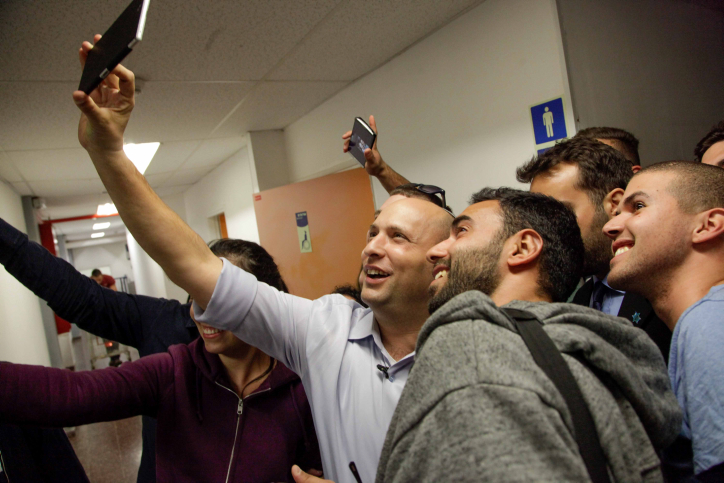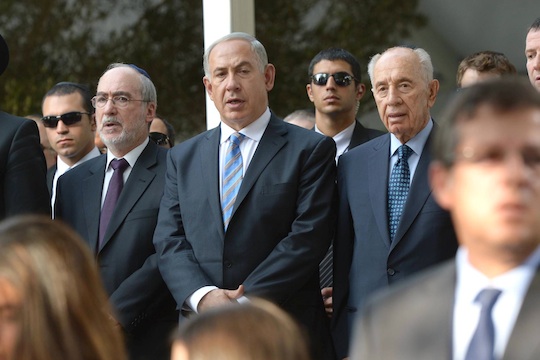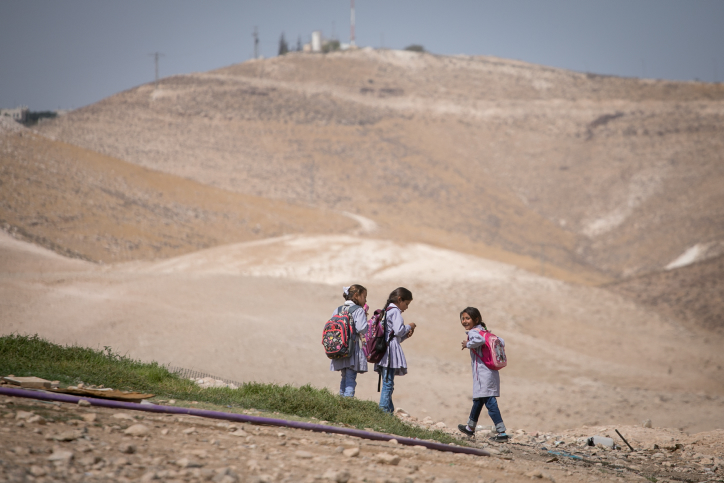A decision to apply Israel’s higher education law to the West Bank exposes as a ruse Israel’s claims that it administers the occupied Palestinian territories according to international law.
By Michal Luft

For years, Israel nurtured its image as an enlightened occupier in the Palestinian territories. It not only insisted on portraying itself to the world as an occupying power that rules over the territories according to the laws of belligerent occupation, it also prided itself on how it administered those territories. That job was given to the IDF’s regional commander, who was portrayed as someone whose job requires him to work in an extremely complex reality, while advancing the rights and welfare of both the Palestinians and Israeli settlers who live there.
The military commander derives his authority from the laws of occupation — not Israeli law. The latter does not fully apply to the West Bank, in accordance with international law.
Israel has used the facade of administering the occupied territories according to international law in its diplomatic relations with European countries, as well as in the High Court of Justice, which has been asked time and time again to rule on issues related to legislation in the occupied territories. The High Court, over the years, has adopted a position (whose relationship to reality was itself always somewhat tenuous) according to which the territories are in fact occupied, and that the Israeli military commander is its temporary sovereign, and thus the legislator in the region, for both Palestinians and Israeli settlers.
Until recently, that position also applied to the Council for Higher Education (CHE), the state body responsible for determining Israel’s higher education policy. The state decided to establish universities and other academic institutions for settlers in the West Bank, yet it did not apply the Higher Education Law 5718-1958 — which gives the Council its statutory powers, and which apply to academic institutions inside the Green Line — to those same institution. Doing so would have contradicted its attempts to present the occupation as complying with the rules of international law.

Thus, in the 1990s the Israeli military commander established the “Council for Higher Education in Judea and Samaria.” (Judea and Samaria is the Hebrew term Israel uses to refer to the West Bank.) The council was established by military order, which included an appendix labeled “Local Council Regulations.” On paper, neither the Israeli government nor the Knesset decided on the Council’s establishment; it was the initiative of the military commander. In practice, however, the Council for Higher Education in Judea and Samaria was established for the sole purpose of serving the needs of the settlers, and not the Palestinians living in the exact same area.
In the beginning of the 2000s, when the Council for Higher Education in Judea and Samaria asked the state (subject to the approval of the military commander) to accredit Ariel University Center of Samaria — which formerly only had the status of a college — universities inside Israel and the CHE itself were opposed, arguing that such a move did not fall under the authority and rules of the CHE. In 2012, these bodies petitioned the High Court against the decision, basing the majority of their claims on what they called proper reciprocal relations between the Council for Higher Education in Judea and Samaria on the one hand, and the CHE and its various committees on the other.
The petition was rejected a year later after Justice Asher Grunis, who was president of the Supreme Court at the time, ruled that the Council for Higher Education in Judea and Samaria did have the authority to recognize Ariel as a university, despite the CHE’s opposition. Grunis never actually discussed the necessity or legality of establishing the Council for Higher Education in Judea and Samaria for the sole benefit of Israeli settlers. Nor did he address the question of whether establishing the council fell under the authority of the military commander, who is “temporarily” charged with administering the territory under the laws of occupation.

Grunis admitted that there is a certain overlap in the existence of both the CHE and the Council for Higher Education in Judea and Samaria. Instead of taking advantage of the opportunity to demand Israel directly apply its higher education laws to the occupied Palestinian territories, however, he argued that such overlap is the “result of special legal arrangements in the Judea and Samaria area.” In her ruling, Justice Edna Arbel noted that the “existence of two parallel institutions… stems from understandable reasons.”
The procedural issues that arose following the accreditation of Ariel University would not have come up had Israel officially and openly applied its higher education laws to the occupied territories decades ago. Doing so would have mitigated the need to establish a separate council by order of the military commander, as well as the friction-creating legal overlap. Yet Israel’s determination to maintain a legal facade of occupation took precedent over all other considerations. It was important for Israel to ensure there is a clear distinction between what happens in Israel and what happens in the occupied territories.
This facade has been slowly fading away over the past few years as Israeli legislators propose bills to apply Israeli law wholesale to the occupied territories (known as “annexation”), and as the military commander in the territories shows a clear preference for advancing Israeli settlers’ interests at the expense of Palestinians’. The Knesset’s recent decision to apply Israel’s higher education laws to the West Bank, and consequently to dismantle the Council for Higher Education in Judea and Samaria, is yet another step in this direction.

One can celebrate the fact that Israel is dropping its mask and revealing its true intentions regarding the occupied territories. Not only does Israel refrain from actually abiding by the laws of occupation in the territories, its occupation is neither temporary nor enlightened. And while the military commander may formally derive his authority from international law, in practice he focuses on promoting the rights and welfare of the settlers, all while acting in lock step with the government to further entrench its hold over the territory.
Applying Israel’s higher education laws in the occupied territories reveals the true face of Israel’s military regime — a regime that serves the settlers alone, and whose goal is to apply sovereignty over the territory, as well as the role of the military commander, whose job is to serve as a tool of the government and its political ambitions.
Michal Luft is an attorney who specializes in human rights in the occupied territories. This article was first published in Hebrew on Local Call. Read it here.
